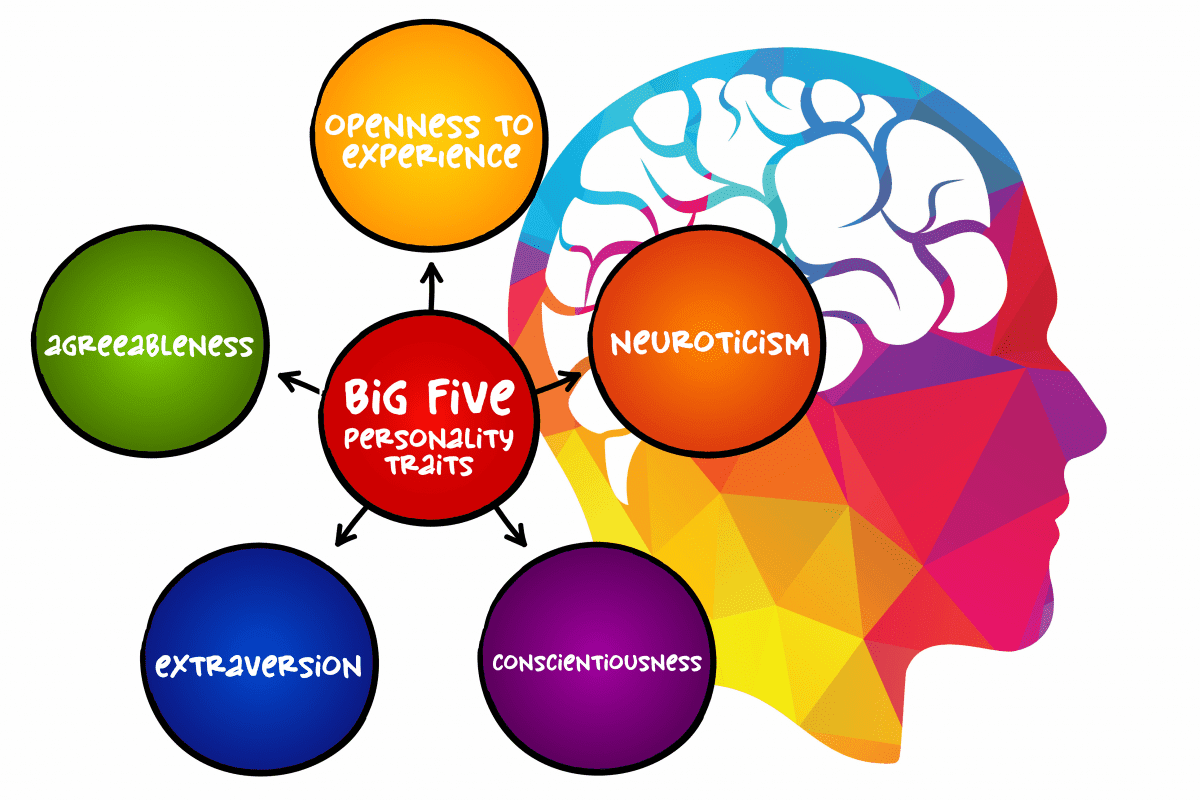Personality traits may be potential markers of dementia risk. This revelation comes from a brand new study published in the journal, Alzheimer’s & Dementia.
The Big Five
As dementia cases rise with increasing life expectancy, understanding modifiable risk factors for cognitive aging have become one of the holy grails of research. Pooling the data from eight different studies involving over 44,000 people, University of California, Davis and Northwestern University investigators homed in on the so-called “Big Five” personality traits and their relationship to cognitive decline:
- Openness to Experience: Love for novelty, creativity, and diverse experiences. Think open-minded explorer.
- Conscientiousness: Focus on organization, planning, and self-control. Imagine a meticulous planner and goal-setter.
- Extraversion: Preference for social interaction and stimulation. Picture the life of the party, energized by others.
- Agreeableness: Tendency to be cooperative, trusting, and helpful. For example, a team player who values harmony.
- Neuroticism: Sensitive to stress and negative emotions, e.g., the worrier who is easily flustered.
The researchers noted that a unique blend of the five traits act like a map, helping to shape individual personality.
“We wanted to leverage new technology to synthesize these studies and test the strength and consistency of these associations,” said Emorie Beck, assistant professor of psychology at UC Davis and first author on the paper. “If those links hold up, then targeting personality traits for change in interventions earlier in life could be a way to reduce dementia risk in the long term.”
Conduct and Cognition
More than 1,700 subjects from the analysis had developed dementia. Results suggested a complex interaction between personality, well-being, and dementia risk.
Neuroticism and negative affect increased the risk while conscientiousness, extraversion, and positive affect were found to have a protective effect. The findings were consistent across multiple studies, despite variations in study design and demographics.
However, when it came to neuropathological indicators — the physical signs of dementia in the brain — psychological factors did not show a consistent association. For example, individuals with higher levels of neuroticism didn’t necessarily carry a greater burden of neuropathology at death. This suggests that, while certain personality traits and subjective well-being can influence the likelihood of a dementia diagnosis, they don’t directly relate to the underlying damage to the brain usually seen in dementia.
The researchers also looked at the impact of openness to experience, positive affect, and life satisfaction on cognition. The results here were more nuanced. Openness to experience showed a protective effect against dementia diagnosis in 42 percent of the studies, while positive affect and life satisfaction each showed protective effects in 50 percent of the studies.
Beck said the most surprising finding was the influence of personality on conduct but not physical changes to the brain.
“If personality is predictive of performance on cognitive tests but not pathology, what might be happening?” She asked.
Certain personality traits might make individuals more resilient to dementia-related brain damage, like that seen in Alzheimer’s disease, the researchers speculated. People with higher levels of these traits could be better at coping with and adapting to cognitive impairments, even unconsciously. Unlike some previous research, they found no association between gender and education and the personality-dementia link.
Personality’s Protective Power
One especially intriguing insight surfaced by the study: as people age, the protective effect of conscientiousness against dementia seems to strengthen. This implies that individuals who consistently demonstrate thoughtful behaviors, like being organized, responsible, and diligent, might be better equipped to stave off dementia in their golden years. The increasing benefit of conscientiousness through the years suggests that the accumulation of healthy habits and lifestyle choices associated with this trait may be one of the keys to safeguarding brain health over time.
Research into the connection between personality traits and dementia is particularly important given the prevalence of dementia worldwide. As of 2020, over 55 million people globally are living with dementia. This number is expected to almost double every 20 years to reach 139 million by 2050. Identifying the underlying causes of dementia is crucial for developing more effective prevention strategies. It would also enable clinicians to diagnose dementia earlier, allowing them to devise more personalized and effective treatment plans.
Further Reading on this topic:
Short, Daily ‘Bran Zap’ Sessions Could Reduce Alzheimer’s Symptoms
Wasabi May Offer A Spicy Solution for Boosting Brain Power
Screening, Assessment, and Pharmacologic Treatment of Mild Cognitive Impairment




